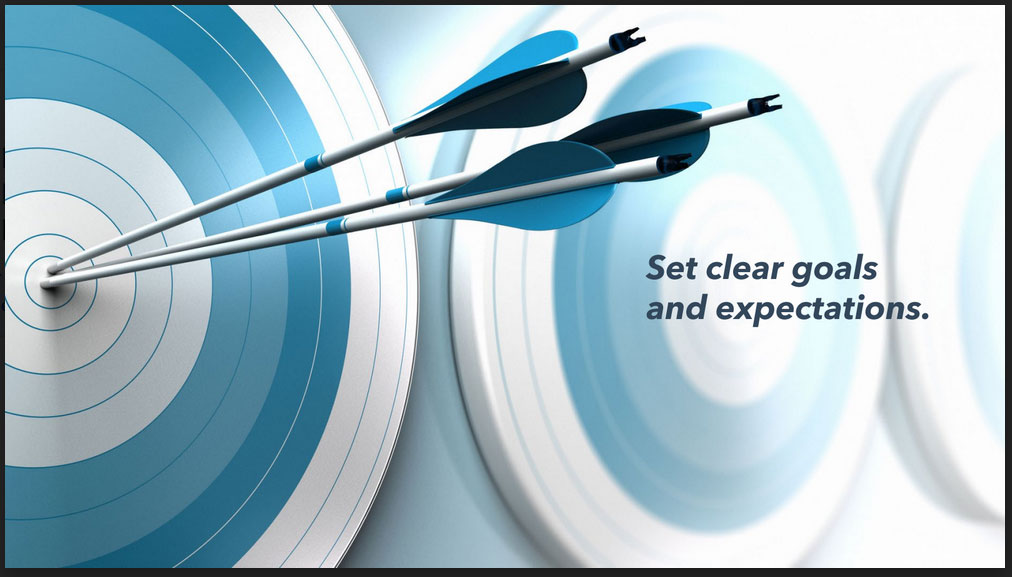How to Become an Effective Inbound Marketer with Communication and Collaboration
Developing effective interpersonal communication is an important key to success for inbound marketers. To make sure your projects are successful, you’ll need to communicate well with your coworkers, bosses, and partners.
These same skills are essential to effectively work with customers and prospects.
A lack of strong interpersonal communication skills can harm both you as an individual and your company as a whole. It can lead to frustration, poor morale, bungled projects, and missed opportunities.
Let’s go over a few of the most important interpersonal communication skills a marketer needs to cultivate to be effective in their roles.
Pay attention for effective communication
We’re all busy, and many of us are working in remote environments. It’s understandable that during a meeting or conversation your mind could wander to all of the things on your task list. Listening and paying attention to others when they speak is a sign of respect and a skill that will lead to deeper and better relationships. Paying attention to what people are telling you is one of the best ways to improve interpersonal relations.

Practice active listening
It’s not only important to listen but to listen actively. Otherwise, your conversations won’t go anywhere. To listen actively, there are five key steps:
- Truly listen and try to keep eye contact, (but don’t stare).
- Don’t interrupt.
- Assume good intent. Don’t judge or jump to conclusions.
- Don’t impose your own ideas or solutions until the person indicates they’re ready.
- Ask questions to clarify and understand.
Read body language and control your own
The same sentence said by someone who’s smiling, looking directly into your eyes, and sitting up straight is received very differently when the speaker is looking away and slouching — even if they meant the same thing both times.
While we can say anything we want, our body language can sometimes exude different intentions or meanings.
Great communicators know how to read others’ body language so they can anticipate the direction a conversation is heading in, and also make sure their body language isn’t sending out signals they don’t mean to broadcast.
Check out this guide to gain a deeper understanding of how to read nonverbal cues and body language.
Master the nuances of voice and tone
Like body language, voice tone — your voice pitch, volume, speed, and even your word choice — affects how the words you’re saying are interpreted.
Pay attention when the other person speaks, then mirror their speaking patterns when it makes sense. While you probably shouldn’t imitate every slang word or lingo they use, try slowing down if they speak slowly, or speed things up if they talk rapidly. Match your level of formality and familiarity with the other person as well. You may speak differently to a customer than you would to a teammate. You want to build rapport and that means speaking in a way the other person is comfortable with.

Pro tip: Try smiling more when you’re talking. It automatically changes the tone of your voice and presents you as more likable and interesting (and interested).
Be empathetic
You don’t have to agree with everything the other person is saying, but you should always try to see things from their point of view. That means more than just saying, “Hmm, I see where you’re coming from.”
Not only does being empathetic make you more likable, but it also increases your ability to better collaborate, or reach a solution to a problem you’re having. When you can draw on your knowledge of the other person’s perspective and situation, you’re better equipped to understand what they care about, which makes it more likely you’ll be able to help them and in turn, they will help you.
Be genuinely curious
A great way to develop rapport with other people is by asking good questions. Great communicators are naturally curious about their conversational counterparts, and that’s especially crucial in the worlds of marketing and sales.

Always be honest
Just because you’re assuming good intent doesn’t mean the person you are speaking to does, so always be upfront about the questions you can answer, the questions you can’t, and the questions with answers the other person might not necessarily like.
The people you’re working with won’t be forthright about their goals and areas for improvement unless they trust you. That means being upfront when you don’t know something so they believe what you’re saying when you do know the answer.
Be flexible and positive
Being positive is something many of us strive for but often find hard to obtain. The trick is shifting one’s mindset.
Dan Sullivan, the founder of the Strategic Coach and author of the book, The Gain and The Gap, says that most people live their lives seeing what’s wrong, or what is missing – this is what he calls the “gap.”
“Being in the gap forces your brain to think that things cannot change. It’s how you develop a negatively fixed mindset.”
Dan Sullivan
Instead, we should focus on the “gain,” or measuring yourself against where you were before rather than your ideals of what should be. The key here is to focus on gratitude and reshaping the way you think about the past.
Your past is subjective and has a meaning that only you can give it, be that good or bad. To put this into action, consider the following: When faced with a difficult challenge, how can you reframe the situation to find the positive aspects? Can you see the progress rather than where things fell flat? What can you learn from the situation to help you grow? Shifting your mindset in this way helps you become more positive not just about the past but also about your future. This enables you to be more flexible, find new solutions to problems, and foster better connections with the people in your life.

Developing strong interpersonal skills is important for any marketer. The concepts we have covered here are only the beginning. For deeper development of specific skills, check out scienceofpeople.com for a wealth of information to help you grow.
How to Be an Effective Collaborator
If you’ve ever worked on a group project, you know the challenges that may emerge when it comes to different personalities and approaches to tackling a problem. In a world where remote work is more common than before, siloed departments, too many unproductive meetings, and different learning and communication styles, are only some of the obstacles users need to overcome to see a project through to a successful end.
But, there are a few collaboration skills you can master that will make working with colleagues, partners, and customers easier and more productive.
Set clear goals and expectations
When working with others, make sure you’re clear about the purpose and vision of the projects that you put forward. Set realistic expectations for the work, and make sure you follow through. You’ll also want to be transparent about what you can do, the timeframe in which you can do it, and how you will determine success.

For example, if you agree to collaborate on a blog post, but you know your contribution will take one month, communicate that. It’s always better to be transparent than to overpromise and underdeliver.
Use meeting times effectively
When setting meetings, make sure you have an agenda for the meeting. What do you hope to accomplish in the meeting? How will you follow up afterward? Do you need the meeting? Are the right people in the meeting? If you want to learn more about how to run a great marketing meeting, HubSpot put together a handy guide.
We have all been in a meeting that was no fun and felt like a waste of time. Check out this article about how to run a meeting that doesn’t suck. Having clear goals and expectations – in an agenda – is one of the best ways to ensure the meeting is necessary and doesn’t waste anyone’s time.
Be respectful
When people are treated with dignity and fairness, they work better together and are more productive collaborators. Valuing diversity of race, gender, religion, sexuality, and culture, and actively seeking to understand diverse points of view, actions, and feelings, sets you apart and in turn, helps you receive more respect from others. One thing to note is, respect is something that should be given regardless of titles–how you treat someone who doesn’t have the same authority as you speaks volumes to everyone around you. Essentially, treat others how you want to be treated.
Be generous
Being generous is at the heart of the Inbound methodology. Inbound is about building meaningful, lasting relationships with consumers, prospects, and customers. It’s about valuing and empowering these people to reach their goals at any stage in their journey with you. You are putting others first, and providing helpful content and information that can help them. The same goes for you as an individual inbound marketer. Being a generous collaborator means you freely give your knowledge, support, and encouragement to those you’re working with.
People will be willing to help and collaborate with you if you’re willing to do the same when they’re in need.
Be appreciative
Acknowledge others. When someone does great work, let them know. Express appreciation to the team. Always give credit where credit is due. When people feel appreciated, they are more likely to work better as a group.
Ask great questions
Great collaborators are naturally curious. They ask the right questions at the right time. According to the Harvard Business Review, research done in the 1970s suggested that “people have conversations to accomplish some combination of two major goals: information exchange (learning), and impression management (liking). Recent research shows that asking questions achieves both.”

That’s great for collaboration because when you can heighten mutual knowledge, and you’re fostering better engagement, that’s a win-win for your projects.
“Ask questions the other person will enjoy answering.”
This is advice given in the 1936 bestseller, How to Win Friends and Influence People by Dale Carnegie. By doing so you’ll receive not just valuable information, but you’ll generate rapport. To do this, ask for advice. Getting someone’s opinion is a great way to get them involved and invested in your projects.
Be ready to help solve problems
When you come to the table with a problem-solving mindset, you’ll see a problem as an opportunity to grow and be motivated to find solutions. Sometimes issues will arise due to a mistake someone has made. Remember to assume good intent–people often make mistakes. Instead of blaming someone, focus your efforts on working together to solve the problem. This goodwill will go a long way to helping the group feel comfortable communicating with each other, even if something goes wrong.
Be disciplined and organized
When you’re collaborating with others on projects, there is a need for routines, processes, and tools to help everyone stay on track. Deadlines and timelines may be important components of a project as well. Being able to prioritize the right tasks and keep track of expectations, whether it is just your tasks or for the whole team, is important.
Additionally, you need to keep other collaborators abreast of setbacks and shifting priorities.
There is one last tip that I have for you:
Be kind
You may feel stressed in your role and there might be a lot on your plate. But, making enemies along the way will only make your job harder. When people like the other individuals they are working with, they are more invested in the work and will put more energy into effectively completing projects. Be kind to the people you need to collaborate with and you’ll find that not only will your projects flow more smoothly, but you’ll feel better about the work and your colleagues too.
Following these tips will vastly improve your interpersonal skills, working both with customers and with colleagues. It may seem like a lot at first, but most of these tips align with the golden rule: treat others how you want to be treated.
We will send you our curated collections to your email weekly. No spam, promise!
